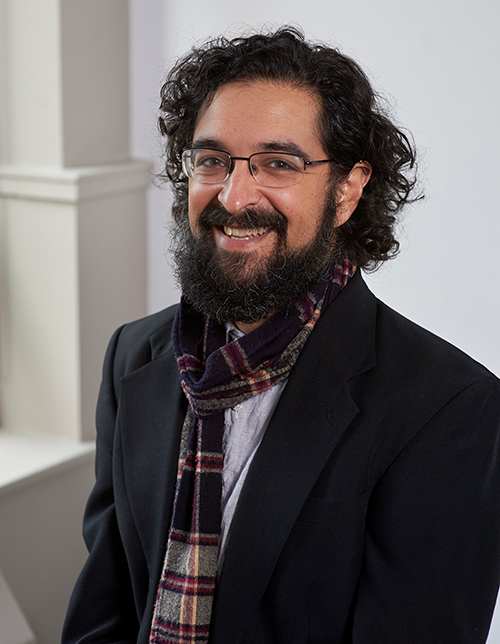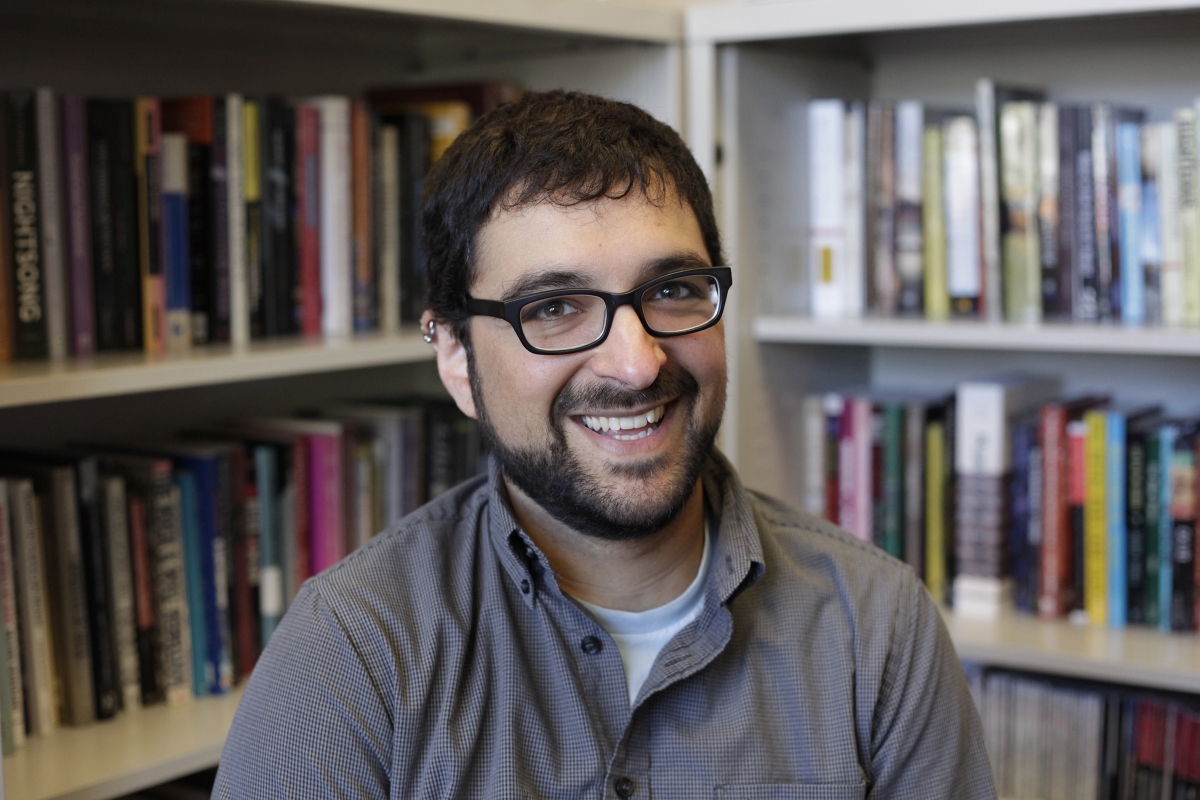
Andrew Mall, Assistant Professor Music Industry and Ethnomusicology, is an arts administrator, scholar of the music industry, teacher, and musician. At Northeastern, he teaches in the Department of Music as well as in the Master of Science (MS) in Creative Practice Leadership program. His research and teaching focus on nostalgia, collecting, and consumption; categories of mainstream and underground music; histories of the recording industries; and the organizational practices and hierarchies of small and large institutions involved in the music industry. We recently caught up with Professor Mall to talk about how the creative industries have shifted during the COVID-19 pandemic, how Northeastern teaches students to embrace the flexibility that is necessary to thrive in these changing conditions, and what he is currently working on. Read more below.
How have you seen artists, creators, and arts administrators pivot over the last few months as a result of the COVID-19 pandemic?
These past several months, I have seen artists and other people who are involved in the creative industries embrace flexibility more than ever before. The most flexible artists are the ones figuring out how to effectively proceed during this challenging time. The reality is that we are all struggling to do our art right now, because almost all art is collaborative; even art that is produced individually makes its way out to audiences in a collaborative way. But generally, I have seen a lot of creativity, innovation, and connection still happening, perhaps just in new or different ways.
Artists are using their skills to provide something of value during this challenging time – something that is still artistic and creative.
They are finding new ways of getting their music, dance, art, and performances in front of audience. In fact, now that most venues are digital, they are even connecting with audiences they may not have seen otherwise, and this is becoming an opportunity to think about how we can make things better.
As an audience member, this moment reminds us what we’re missing, which is also so important. Live streams may not be as lucrative, but they remind audiences that performers are still there and will be back on stage when it is safe to do so.
How does the MS in Creative Practice Leadership degree help students become prepared, nimble, and innovative arts/creative leaders?
The Creative Practice Leadership program doesn’t teach students to do one or any single thing; rather, it takes a broad approach to teaching students about creative practice and how to successfully do administrative and managerial / thought leadership work in fields of creative practice.
This approach provides students with the critical foundations of creative practice leadership more generally.
From the theoretical and empirical frameworks the program offers, students learn how to develop several blueprints when they are approaching a project or challenge in the field. For example, in one of my classes now, I am asking students to learn about the creative industries in a city they are not familiar with, challenging them to explore questions such as: What is the audience? What are the incentives? Who are the major players? From there, the students will produce case studies on several creative practitioners – individual or institutions – and think through the different ways these creative practitioners are creating art. This project will allow students to explore various approaches to creative practice and make the project work for their own professional objectives.
Since this master’s degree is conceived as interdisciplinary, the curriculum is customizable; students can choose from a variety of courses from different departments that best suit their professional needs.
What types of students do you see in the Creative Practice Leadership program?
I have been pleasantly surprised by how many growing fields the students in the program represent. We have Creative Practice Leadership students interested in the science, technology, and politics side of the coin. We have others who are more involved in music and who have experience as music festival promoters. Other students want to dive into the non-profit, visual arts, and arts administration angles – it really varies! Regardless of their backgrounds and interests, all of the students seem really hungry for and excited about all of the different ideas they are discovering in class.
What projects or research are you currently working on, in addition to teaching?
I have two books coming out. My single-authored book is entitled God, Rock, Inc. (November/December 2020 release), and it is about the Christian music industry in the United States. The second one is entitled Studying Congregational Music (published by Routledge), which is set for a February 2021 release; I am one of three co-editors. Beyond that, my next project is going to focus on music festivals and building out a research network among music festival professionals. My goal is to get some answers on how this industry functioned up until 2020, and then explore the dramatic changes we will see in a post-COVID-19 society.


